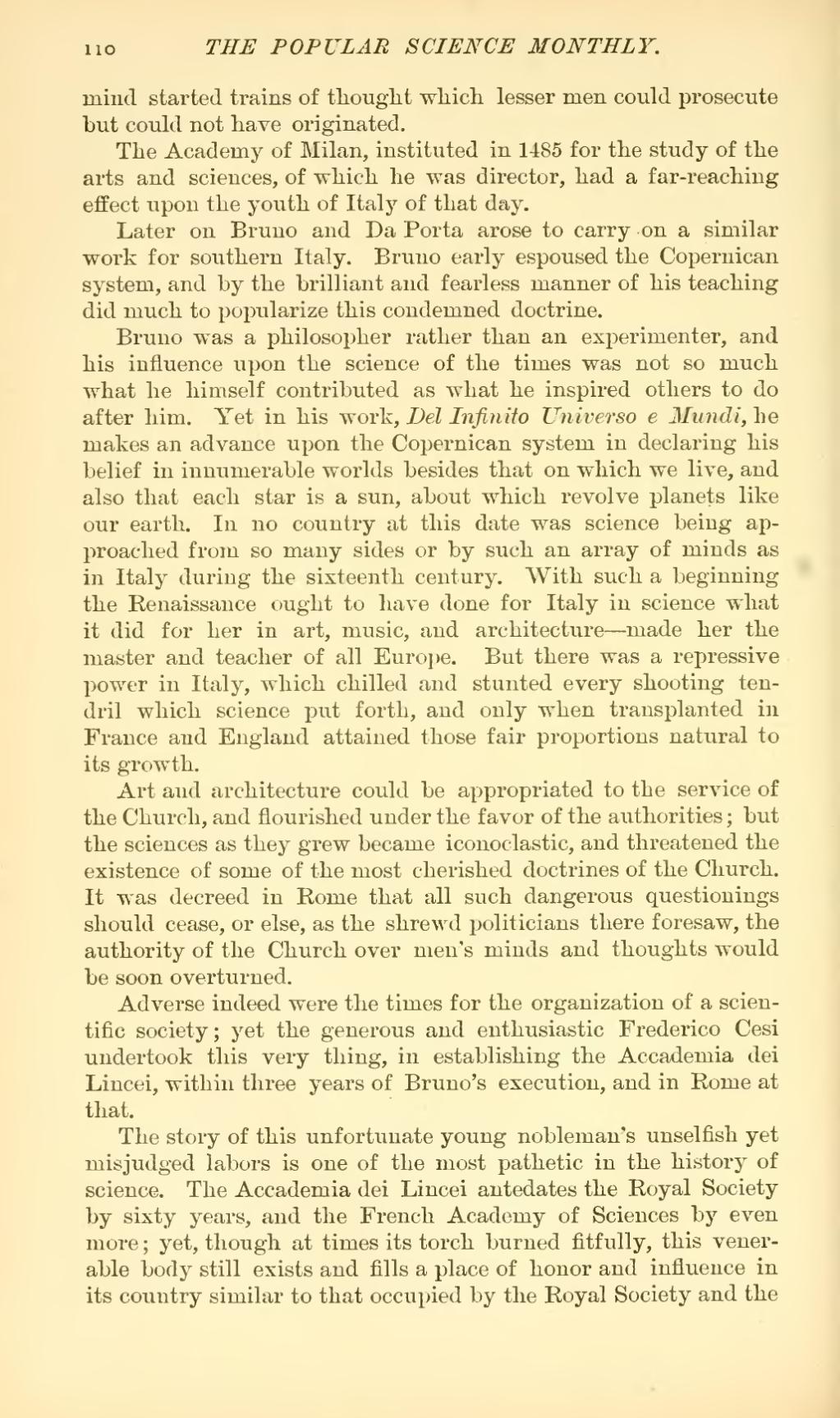mind started trains of thought which lesser men could prosecute but could not have originated.
The Academy of Milan, instituted in 1485 for the study of the arts and sciences, of which he was director, had a far-reaching effect upon the youth of Italy of that day.
Later on Bruno and Da Porta arose to carry on a similar work for southern Italy. Bruno early espoused the Copernican system, and by the brilliant and fearless manner of his teaching did much to popularize this condemned doctrine.
Bruno was a philosopher rather than an experimenter, and his influence upon the science of the times was not so much what he himself contributed as what he inspired others to do after him. Yet in his work, Del Infinito Universo e Mundi, he makes an advance upon the Copernican system in declaring his belief in innumerable worlds besides that on which we live, and also that each star is a sun, about which revolve planets like our earth. In no country at this date was science being approached from so many sides or by such an array of minds as in Italy during the sixteenth century. With such a beginning the Renaissance ought to have done for Italy in science what it did for her in art, music, and architecture—made her the master and teacher of all Europe. But there was a repressive power in Italy, which chilled and stunted every shooting tendril which science put forth, and only when transplanted in France and England attained those fair proportions natural to its growth.
Art and architecture could be appropriated to the service of the Church, and flourished under the favor of the authorities; but the sciences as they grew became iconoclastic, and threatened the existence of some of the most cherished doctrines of the Church. It was decreed in Rome that all such dangerous questionings should cease, or else, as the shrewd politicians there foresaw, the authority of the Church over men's minds and thoughts would be soon overturned.
Adverse indeed were the times for the organization of a scientific society; yet the generous and enthusiastic Frederico Cesi undertook this very thing, in establishing the Accademia dei Lincei, within three years of Bruno's execution, and in Rome at that.
The story of this unfortunate young nobleman's unselfish yet misjudged labors is one of the most pathetic in the history of science. The Accademia dei Lincei antedates the Royal Society by sixty years, and the French Academy of Sciences by even more; yet, though at times its torch burned fitfully, this venerable body still exists and fills a place of honor and influence in its country similar to that occupied by the Royal Society and the

